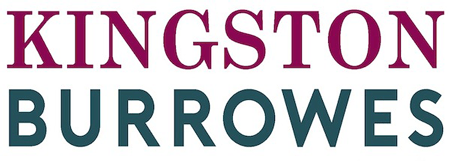Accurate bookkeeping is the foundation of business accounting. Without it, how can you track your cashflow, stay on top of your taxes or understand what finance you need to sustain and grow your business.
Consider the impact that poor bookkeeping might have in the event that you missed accounting deadlines, or you were led into a difficult legal situation. Good bookkeeping keeps you on track in so many ways and forms the building blocks of the longer-term strategic decisions that you will take for your business.
Outsourcing the task to an expert who can provide bookkeeping support could be the ideal solution, but for various reasons, this isn’t always possible for every organisation.
With this in mind, what key principles and habits should you follow to ensure that your bookkeeping practices support the success of your small business?
Separate Personal and Business Bank Accounts
While this might seem a small matter when your business is first formed and only operating on a small scale, you’ll be surprised how quickly expenses mount up. Therefore, creating a separate business account as soon as possible will make the task of bookkeeping much more straightforward.
You will need to cross check your internal records against your bank statement, and this will be a lot simpler if you are certain that all transactions relate to the business only. Bear in mind that having multiple business bank accounts could also lead to confusion when trying to keep up with your bookkeeping as you will have numerous transactions across accounts to track.
Consider your options carefully when choosing a business account as there are likely to be a range of flexible options available which differ to personal banking.
Knowledge is Power… But only when it’s up to date!
There is no escaping the fact that many elements of bookkeeping are complex, and this single reason is why many people defer to a bookkeeping professional for support. That said, regardless of whether you will be doing the job yourself or outsourcing it, you should equip yourself with a basic understanding of bookkeeping processes. Without this bottom-line knowledge, you will struggle to understand and communicate with a professional bookkeeper or accountant on even simple bookkeeping issues. An understanding of the legalisation and processes is even more important if your business operates internationally.
If you have decided to manage your own bookkeeping, you should acquire a basic level of understanding and ideally you should dedicate some time to expanding on this over time. Which leads directly to the issue of keeping your knowledge current. HMRC and other legislative bodies are notorious for the rate at which they make changes to accounting requirements. You will need to keep on top of these tax and accounting changes, even if you are just maintaining the bookkeeping before handing the completion of formal accounts and returns to an accountant.
Get Organised
Part and parcel of running a business is keeping it organised and this is particularly important when it comes to bookkeeping. You need to keep your financial documents organised so that you can locate relevant documentation should you need it in the event of any future bookkeeping and accounts issues, such as an HMRC tax investigation. This evidence would be essential should an investigation be launched and HMRC requires that businesses keep documentation relating to tax claims for a minimum of 6 years.
Monitor Cash Payments
Your business will likely incur numerous cash costs and it can be tricky to keep track of every transaction, especially if you have frequent similar transactions.
One solution to simplify this issue is to use a debit or credit card when you can, as the less cash transactions you make, the easier it will be to individually identify and record them. It will also help to make a note of purchases as and when they happen. These purchases may seem small but added together, they have a significant impact on your profit and loss, which is essential to your bookkeeping efficiency and higher-level accounting.
Receipts and Invoicing
Receipts and invoicing differ in that a receipt is issued a proof of payments for goods or services, whereas an invoice is a request for payment. Both need to be carefully recorded to ensure all transactions are tracked.
Invoicing can have a significant impact on your cash flow if you do not promptly issue them to your customers when goods or services have been provided. Keeping on top of this also helps to identify any inconsistencies.
Regular bookkeeping
Keeping your books up to date should be a regular habit built into your business schedule as it ensures that your finances are kept in check and provides forewarning of any cash flow issues. The more consistent your bookkeeping is, the more reliable your financial information will be, and you will even start to see trends and patterns which can help you to make informed decisions about the future of your business. By consistently updating your books, you will improve the quality and reliability of your data.
Tax deadlines and obligations
It is essential that you know not only which tax deadlines are applicable to your company, and when those deadlines fall, but also when the associated payment of tax is due. If you make the mistake of using all your spare cash for day-to-day business operations without setting aside finances for your tax obligations, then you are going to be faced with a very difficult situation when the deadlines loom.
Best practice suggests that you should set aside the tax element of your earnings as soon as is it received. This could even be done using a separate bank account for added reassurance that you will have funds available when the tax bill arrives.
Bookkeeping Software and Making Tax Digital
There is what seems like endless choice when it comes to bookkeeping software, or cloud accounting as it is often referred. As intimidating as this seems, it does mean that there is almost certainly a solution available that meets your specific business bookkeeping needs, whether your business needs to file VAT returns or operates internationally etc. Take a look at our blog on Choosing the Right Cloud Accounting Software for further guidance in this area. In summary though, you should consider software which can grow with your business and which performs the functions you need on a day-to-day basis.
Bookkeeping Support in South West London
All businesses need external support in different areas, and while some will confidently manage their own bookkeeping, for others the support of an experienced professional is invaluable.
At Kingston Burrowes our team has experience supporting all sorts businesses with their bookkeeping and accounts, and are certified across many of the top accountancy software providers such as Xero, QuickBooks, Sage, Kashflow, VTT+ and FreeAgent.
For a no obligation discussion regarding your bookkeeping requirements, please get in touch.




